The national school feeding programme appears to be going well when MANSUR IBRAHIM assessed its implementation in Osun state. But there were ominous signs as vendors complained about catering for more pupils than agreed and teachers expressed unhappiness with “teaching on empty stomachs” as a result of issues with their salaries.
STORY HIGHLIGHTS
- The feeding programme has increased school enrolment
- Food vendors complain of feeding more children than paid for
- Beyond government provision of feeding for pupils, teachers cry for a better welfare
- Government sure of sustainably of project beyond FG involvement
First stop was at AUD elementary school, Isale Osun, in the suburb of Osogbo, the Osun state capital. It is one of the schools remodeled by the state governor, Rauf Aregbesola.
“The school feeding is really doing well,” the headmistress, Sola Faloni, said. Since the feeding started, excited parents have been bringing in their kids who are still below school enrollment age.
Advertisement
“We do beg them to wait till their kid is 4 before bringing them to school, but most of them don’t want their child to miss out on the school feeding,” Faloni disclosed.
The school’s chief vendor, Ganiyat Salau, told TheCable that each vendor, on a daily basis, is paid N42 to feed one child. She, however, expressed her worry as the money provided is not enough since prices of foodstuffs increased.
OSUN FEEDS PRIMARY 1-4 PUPILS
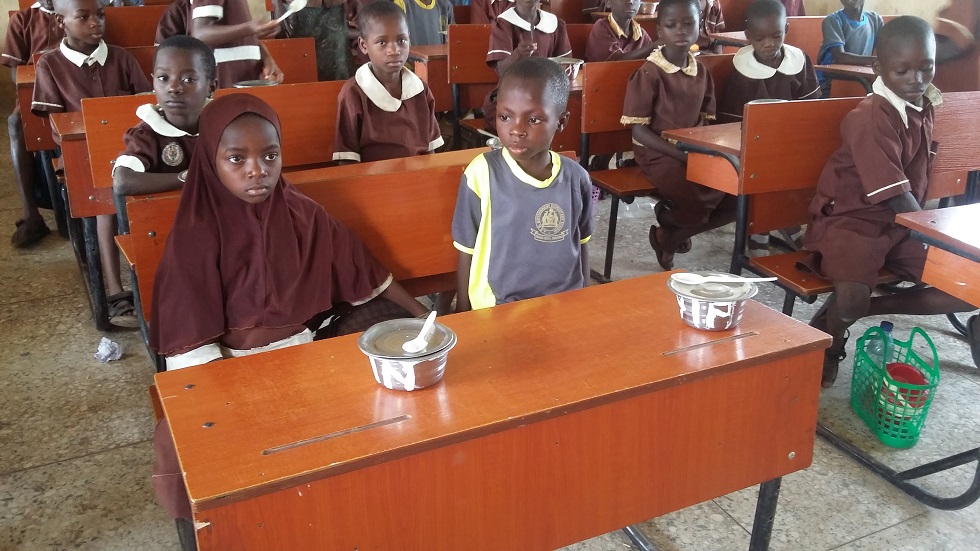
The state programme officer for O’Meal — as the school feeding programme is called in Osun —Toyin Ayoola, told TheCable that the feeding programme started in the state on May 5, 2006, through an UBE act.
Advertisement
“Thirteen states were chosen specifically as pilot-states, and Osun was one of them,” he said, adding that when Governor Aregbesola came to power, he decided to rebrand the programme. “This was done on the 13th April 2012 and to God be the glory, the programme has been moving forward.”
Ayoola said upon the federal government’s input, vendors now get N70 to feed a kid per day.
“We started initially with pupils in 1-3, but we recorded a very big increase in enrolment and Rauf Aregbesola decided to add elementary 4 to it so that the meal classification will also align with the FG’s feeding programme,” he said.
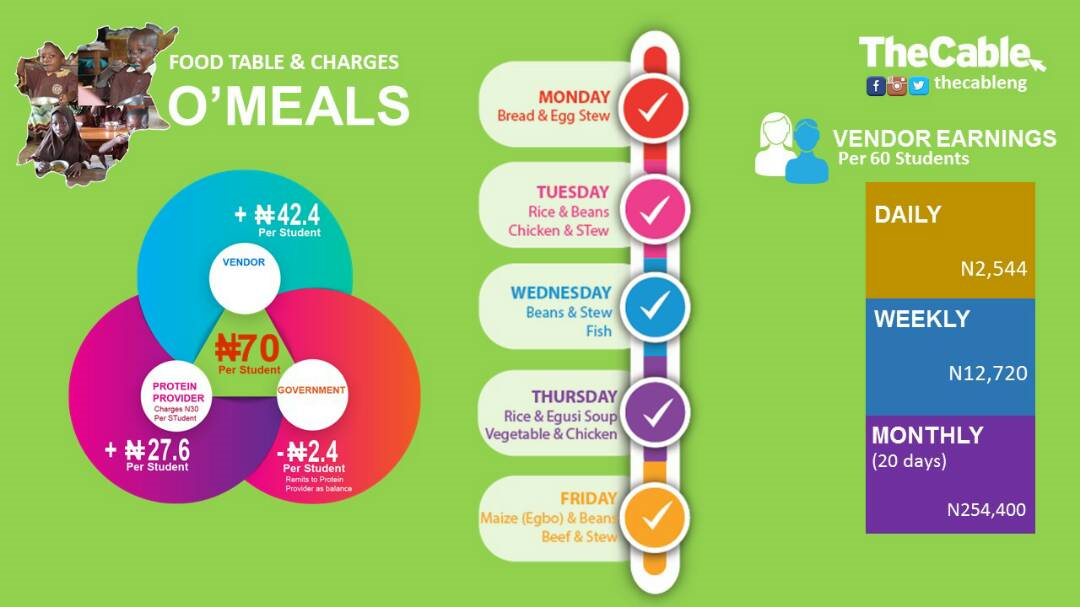
“With the classification, we have pupils in elementary, middle and high school. Elementary schools are for pupils in grade 1-4. So presently, all our pupils in elementary schools are being fed.”
Advertisement
VENDORS WERE TRAINED AND MEDICALLY SCREENING
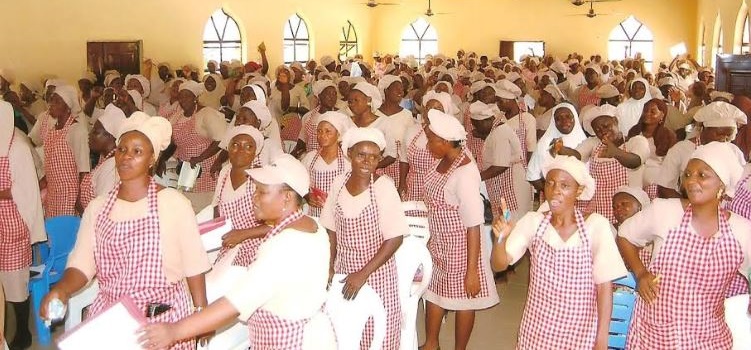
Speaking on how the vendors were selected, Ayoola told TheCable that vendors applied following adverts placed on both print and television, and selected applicants were trained for months before the programme kicked off.
“At the start of the programme, food vendors were employed and trained, kitted and mandated to go for medical screening,” she said.
“The way the programme runs in the state is that some contractors, farmers give us protein materials which we then give to food vendors. Protein items like beef, fish, egg and chicken are given to them at central collection points.”
She added that they deduct only for the protein from the total amount of money they are supposed to give the vendors.
Advertisement
‘WE FEED MORE THAN WHAT WE ARE PAID’
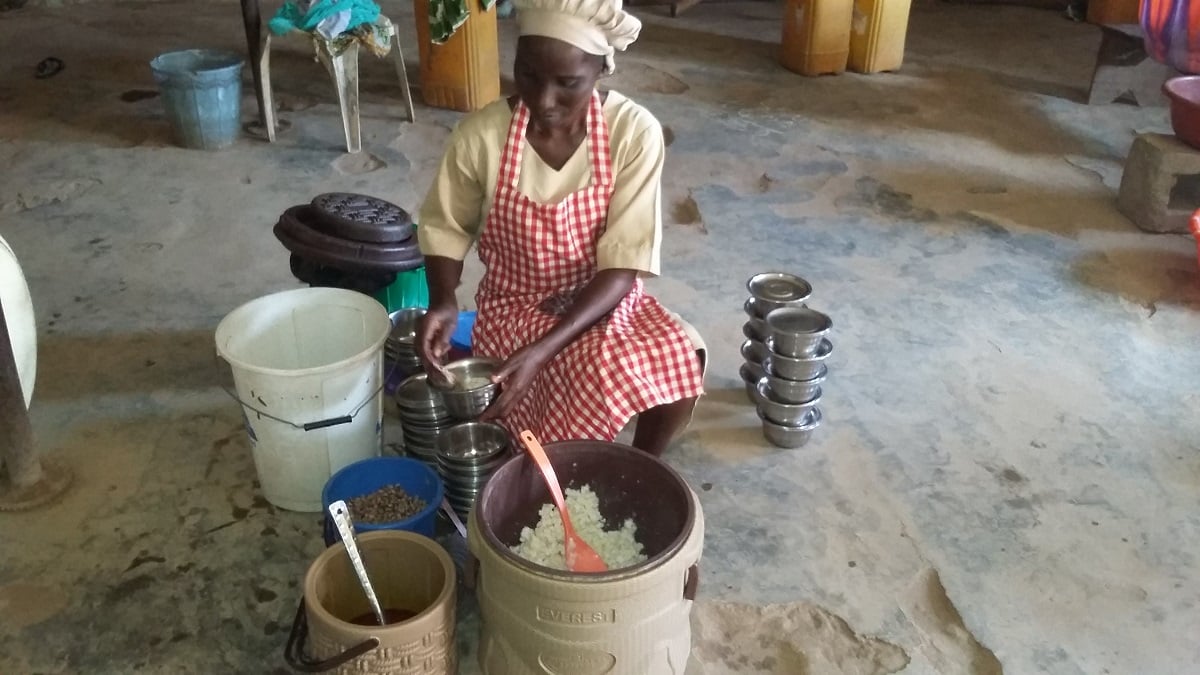
A general complaint by the vendors was that some of them feed pupils above the number paid for.
One of the vendors, Silifat Bello, who spoke with ThCable, said she is being paid to feed 38 pupils but she eventually feeds a total of 40 pupils, meaning she feeds extra two without pay. Some other vendors shared similar experiences.
Advertisement
Omolara Isiaka, who tends to pupils in St James RCM, Orolu local government area, said she feeds 60 pupils at the rate of N42 per child. “We pray the government will increase the pay because prices of food have gone up in the market.”
Reacting, Ayoola said: “What we do is that we monitor and whatever we find, we implement. If there is an increase, we add; if there is a decrease, we remove. But no matter what, we give them at least a margin of 5.
Advertisement
“When we started, we gave some food items and we do in a way that is very transparent. When we started with N50, the amount we deducted for eggs is quite different. When we started, it was N21 for each; for egg, beef, chicken and I think about N17 initially for fish.
“So what we do then is to add the deductions. We multiply the N50 meant for a child by five days in a week to give you N250 and deduct the total and just give the balance to the food vendor. But that was then.
Advertisement
“When we increased to N62, we were paying them N41.2 because all the items I mentioned went up. That time the egg supplier increased the price to N25, same with the beef, chicken. It was only the beef that was at N18, after the deduction of all of these that they now got N41.2. But as at today, they are collecting N42.4. Note again, we started with N50, then to N65 and then to N70 as at January this year when the federal government took over.
“We always explain to them, if you add all these other items you’ve been given, it will amount to N70. The good thing is that hardly can they get the things we give to them at that price outside.”
When asked how the state has disbursed the funds from the federal government, Ayoola explained that it is not all the children that the federal government is feeding. “The federal government makes provisions for the feeding of pupils in basic 1-3, and this started in the third week in January.
“Before that time, it has been the state together with all the local governments that bore the cost. Local government gives us 60% of all we spend while the state will add 40%.
“We have funding problems too but thank God the federal government has keyed into it that has been some kind of relief. But you will agree with me that the price of food items continue to increase on a daily basis.
“That is why we continue to call on philanthropists to key into the programme. Corporate organizations should use that as their social responsibility to key into programme and support the states that are having the programme because it is really not expenditure but an investment.”
She further explained that vendors were prepaid fortnightly. “Before you even cook, you will collect money for two weeks. But it has changed because the economy has changed. At a time we owed them but whenever we owe, we tell them because it is a programme that has continued over time. We have people who give them food items on credit. Now that the federal government has joined the scheme, when there is any delay, other states stop, our own doesn’t stop, we continue to cook for our children.”
Ayoola spoke of how some of the vendors have BVN issues and are yet to be cleared for payment.
It was also gathered from the vendors, how Mondays are usually tough for them as the bread is usually not enough to go round, and pupils end up eating half bread and egg.
SPECIAL NEEDS CHILDREN GET FOOD — BUT NOT ENOUGH
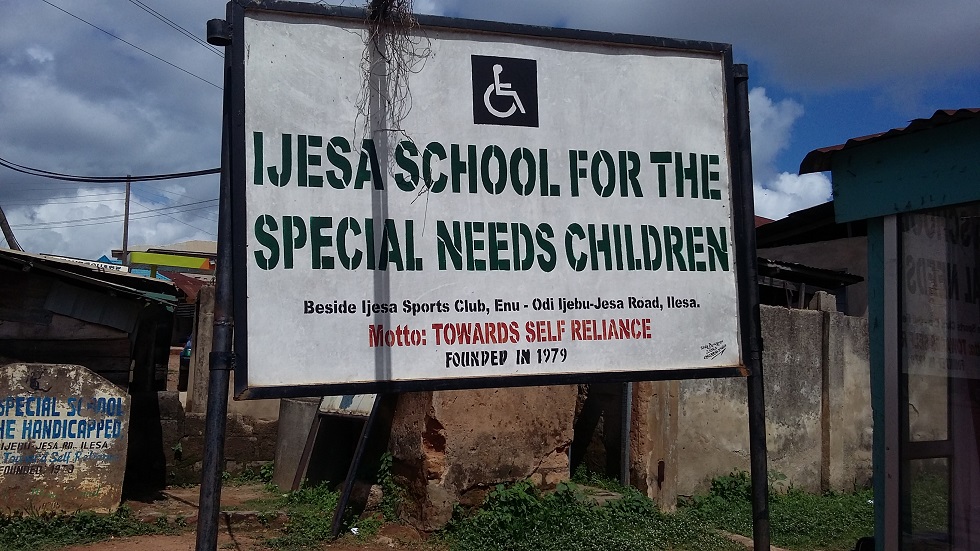
“Since the feeding programme started we enroll at least a child every day of the week, for this week, we’ve received pupils from Monday to Thursday,” said Lara Jegede, the headmistress of Ijesha School for the Special Needs Children, Ilesa. “Parents who used to hide their kids before now bring them out because of the feeding program,” she added.
Speaking in sign-language with one of the pupils, he told TheCable that he’s always excited to come to school to learn and also eat free food.
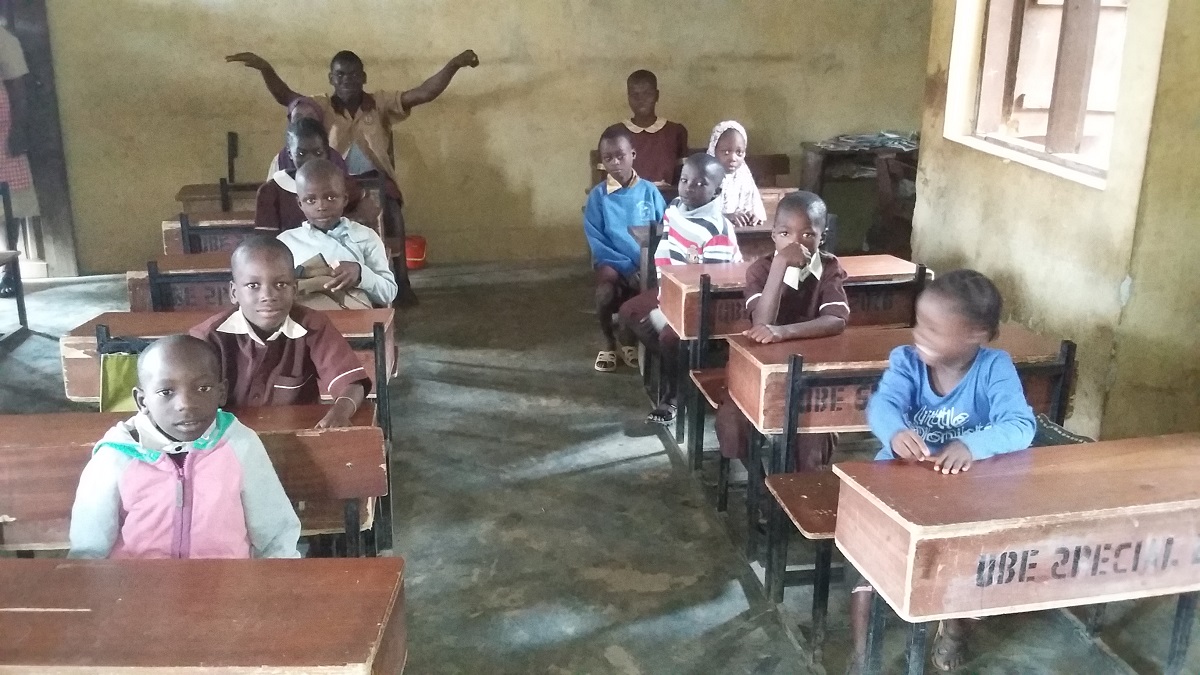
Like with other schools, the vendor who is in charge of feeding the pupils here also complained of serving more pupils than she’s being paid for. “I try to manage the bread by dividing one into two for two pupils,” the vendor told TheCable.“I also share the egg into two too so some of them don’t feel left out, but for other meals like rice, beans, I can dish it in a way it gets to all the pupils.”

The headmistress confirmed the vendor’s claim, saying she had reported this to the local government authority but they are yet to see changes.
FREE MEAL BRINGS PRIVATE PUPILS TO PUBLIC SCHOOLS

An official who spoke with TheCable on the increment on school enrollment since the feeding started, explained: “When we started in May 2012, there was about (38,000) 25% increase and as at June 2012, enrollment of pupils increased from 155,318 to 194, 253 and as at December 2012, the number went up to 252,000.” He added that since the programme got redesigned, the state continues to lead in school feeding and that is why the federal government adopted Osun state as a model for all the other states in the federation.
“We have other states coming around to visit and to make enquires and to understudy us. About 13 states have been here on a learning visit.”
When the TheCable enquired about the current number of pupils being fed, the officer said enrolment is not static.
“We continue to have fluctuations. But at least we can see that some parents withdrew their children from the private schools to public schools. I even heard of situations where the children will say they want to go and eat Aregbe lunch,” she said.
POULTRY FARMERS BENEFITING
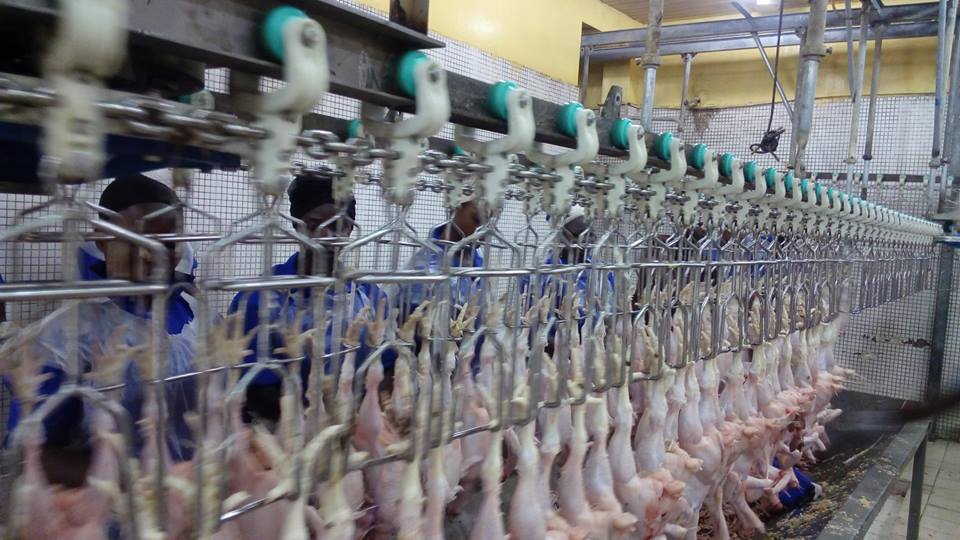
One of the federal government’s aims at the inception of the feeding programme is to empower farmers who bring in their produce.
Located at Km 9 New Ikirun road Osogbo, Osun state, Tuns farm, is one of the farms supplying the chicken for the Osun state feeding programme.
Olalekan Badmus, the managing director, lauded the initiative, saying it had created a lot of jobs in the state especially for local farmers. He said the program has impacted over 600 farmers and they’ve paid over N600m. “It has created employment and it has increased the standard of living of some people,” he added. He listed over 3,000 food vendors, meat and fish sellers as beneficiaries of the programe.
Speaking on how the farm got the contract to supply chicken, Badmus said they established a relationship with the state government in 2012 by encouraging farmers in Osun to be raising birds.
“As at when we started, we had six local broiler farmers, they’re over 600 now as I’m speaking with you. What we do is that we provide the input for them, the day-old chicks, and the feed, everything they need to raise the birds.
“It is the chicken they give us, that is the day old chicks we gave them to raise, we then buy it from them and we now cut and give to the school for the feeding of the school children.”
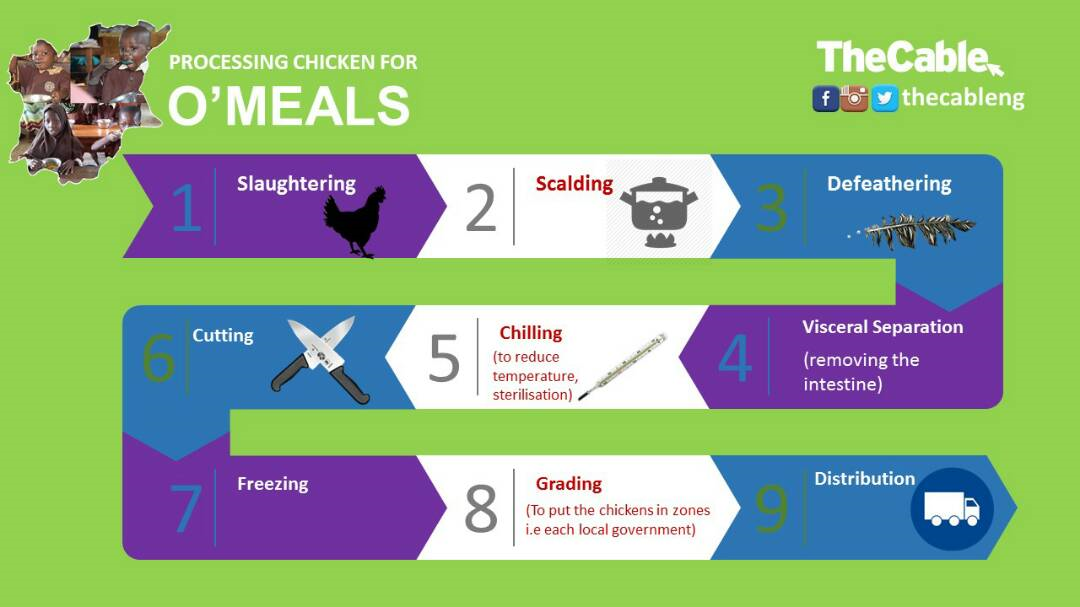
On paying the farmers, he said they weigh the chickens at the point of buying from the local farmers and from there they pay them what is calculated as their gain.
“From the available N70 per child, the farm gets its own cut but the prices fluctuate. Currently, we’re being paid N30 per piece for a child.”
In June 2016, the federal government and Tuns farms limited signed a N25 billion Memorandum of Understanding (MoU) on National Egg Production Scheme (NEGPRO).

Audu Ogbeh, minister of agriculture and rural development, had expressed optimism that the signing of the MoU will boost the protein nutrition of the school feeding programme.
“It is an interesting development, and today we are talking about a Nigerian successful farmer rather than a foreigner from a distant place to render service which before now would have been impossible,” he had said.
WE ARE HUNGRY, FEED US, TOO, OSUN TEACHERS CRY

At Methodist Elementary School, Isale Aro, it was a different story as the teachers lamented half salary payment, adding that they can’t teach on empty stomachs. One could tell from their sad faces in the staff room.
“Don’t you think we teachers deserve to be fed, too?” one of the teachers said, adding that “surviving under half salary is not it all.”

Teachers complained that, for more than a year, they have received half salary, and full tax is being deducted on their half pay. “We are suffering in silence,” another teacher said. “The suffering is too much, some of our colleagues have died, and maybe when you get to Lagos, you can help us tell them over there that what you’re seeing in the news is a lie. We’re suffering. And the half salary doesn’t come frequently, you may get this month and not get next month.”
‘EMPOWER US AND LEAVE US TO FEED OUR KIDS’

Fausat Zakari, one of the parents who spoke with TheCable, said the quality of the food being fed the pupils has dropped. She also observed that 11am when food is being served is too late for a kid’s breakfast.
“I know the school feeding is to motivate the children to go school but more programme needs to be created for the masses as there’s poverty in the land,” she said. “If as a parent I’m empowered, I don’t need government to feed my children, rather I would be able to feed them three times in a day.”
Afolabi Kamarudeen, a private driver who relocated to Osun state from Lagos five years ago, commended the initiative and implored the federal government to improve in terms of the quantity and quality of the food.
Like Zakari, Kamarudeen believes government can focus more on empowering parents and leave them to feed their kids.
GOOD INCENTIVE FOR THE KIDS, SAYS NUT

Abdullah Muhammed, assistant secretary general of Nigeria Union of Teachers (NUT), Osun state wing, said the programme is a good incentive for the pupils.
“You know Osun is a rural state and we have not recorded enrollment for some time but with this feeding, the enrollment figure is now higher than what it used to be,” he explained. “As a body, NUT likes the program. We only pray that the program can be sustained and that it is extended to every school in the state because it is not good that it is restricted to the metropolis.”
He, however, appealed to the state and federal governments to look into the welfare of the teachers, saying hungry teachers cannot teach well.
“Owing to the economic challenges, teachers have been on half salary for about 2-years now and a hungry teacher cannot teach well, compared with other professions. A teacher that is not well fed may not have the energy to teach in class for about 40 minutes. We pray that the government would start paying full salary so that the teachers will be able to cope with the demands of the job,” he said.
Fatai Kolawole, the chairman of the state universal basic education (SUBEB) also lauded the feeding programme, saying the numbers of pupils has been on the increase since the inception of the scheme.

“Numbers of school pupils are on the rise every term, the school children are always excited to come to school, parents are happy too because the burden of feeding their kids have been taking off them,” he said.
Kolawole appealed to the government to help provide vehicles to use in monitoring the programme across the state.
‘O’MEAL WILL STILL CONTINUE WITHOUT FG’

In an interview with TheCable, Grace Titi Laoye-Tomori, deputy governor of Osun state, said the state was indeed relieved when the federal government intervened in the school feeding programme, but feeding would have continued even without their intervention.
“When the federal government intervened this year, they took 142,193 pupils off us. Hitherto, we were feeding 152,000 students so now we have fewer mouths to feed and we are very happy about that and we would have continued even if the federal government did not intervene,” she said.
When asked how much the state has spent since the current administration began the programme, she said they’ve spent over N10bn.
“When we started the programme, it was costing us about N3 billion per annum, we didn’t mind because of the impact on our children, then the impact on the economy. It has actually grown the loophole economy, because we have a directive that nothing must be sourced from outside the state to feed the children. So even the market women selling pepper, vegetables, rice, and beans have benefited a lot because there is an already made market for their products,” she added.
Speaking on the sustainability, Laoye-Tomori said, it is only a government that wants to destroy itself that would not sustain that programme.

“It has impacted positively on the economy of our state; it has taken many youths off the streets, because we empowered quite a lot of them as off tickets for the supply of the carbohydrate components like coco-yam.
“We advised the youths to go into massive production of coco-yam which we feed the kids with. Also, apart from coco-yam, we have these orange flared potatoes. It is a cross-breed of carrot and sweet potatoes which we have introduced into the scheme, and this is being produced by the youths.
“The governor and I and some members of the executive committee went to Ikoyi, Ago-Iwo yesterday and I was telling the governor, I am sure those kids are fasting and they are taking the food home with their own food pack so it is a proramme that has endeared the government to the people, especially women. And I can tell you that women, especially those in the rural areas, are the voters.
“They support us, they believe in us because if you assist in feeding somebody’s child, that person will be loyal to you. But happily, we are backing it up with legislation, so that should put the mind of the food vendors at rest; they will not lose their jobs.”
This is a special investigative project by Cable Newspaper Journalism Foundation (CNJF) in partnership with TheCable, supported by the MacArthur Foundation. Published materials are not the views of the MacArthur Foundation.







